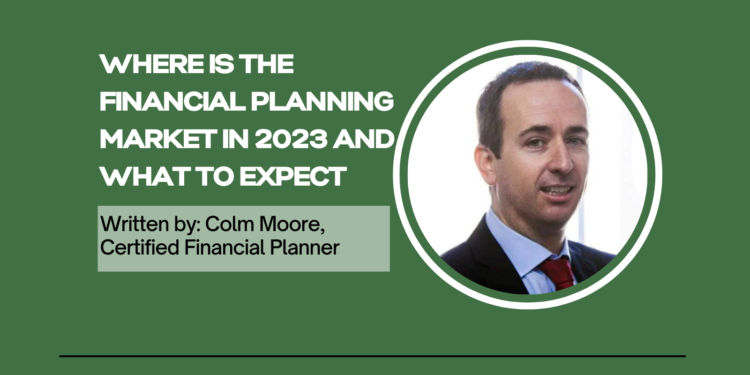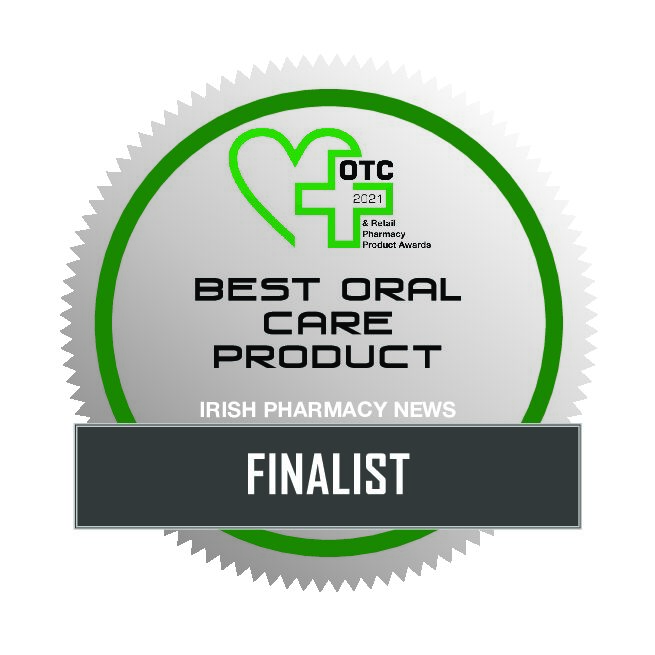Written by Colm Moore, CERTIFIED FINANCIAL PLANNER™ with Moore Wealth Management.
They have been advising the pharmacy community for over 20 years. He can be contacted on 086-8603953. For more see www.mwm.ie
Financial Advice is a broad term with many definitions and interpretations. Depending on the provider you choose what you receive can vary greatly along with the outcomes. The need for a definitive process to guarantee the best solutions for consumers was the primary driver behind the introduction of the CERTIFIED FINANCIAL PLANNER™ designation in Ireland back in 2010.
There are less independent advisers operating over the last 10 years as the market place shrinks and consolidates. The pillar banks, Allied Irish and Bank of Ireland have bought up Goodbody and Davy Stock Brokers respectively. The Canadian owned Irish Life (whose pensions and investments you are sold if you take your advice from the AIB bank channel) are buying multiple medium to large size brokerages to develop their assets under management.
The CERTIFIED FINANCIAL PLANNER™ designation is a standout in the market place for those who want all options evaluated for them. With an estimated 300 acting independently in Ireland they are highly qualified professionals who ensure you are getting the best advice available from all the options in a process that’s accountable and transparent. They like you small business owners who understand your hopes, fears and financial issues as they deal with these themselves on a daily basis.
A CERTIFIED FINANCIAL PLANNER™ operates with a clearly defined process of developing strategies to help people manage their financial affairs to meet life goals defined as
1. Establish and define the clientplanner relationship.
2. Gather client data, including goals.
3. Analyse and evaluate your financial status.
4. Develop and present financial planning recommendations and/ or alternatives.
5. Implement the financial planning recommendations.
6. Monitor the financial planning recommendations.
So when you decide you want independent advice what does this mean to you and how does this translate to a financial review once steps one and two above are completed. In practical terms when carrying out a review for any new client we look out for the following Life Cover Review
First you look at what you need for family, business and loan
protection. There are methods to quantify this and one of the most accurate is to map out the impact of the death of either spouse on future cashflows for a defined period which can be to the point for example where any children are through college and independent. Once this figure is established we look at any existing policies to see if they fulfil this need. In some cases we find that clients were over insured and they ended up saving money by cancelling policies. In other cases we find clients are overpaying for cover because due to intense competition in the market place insurance companies are reducing premiums to drive business and increase market share. For over 5 years now one of the main insurers in Ireland has had a discount of 15% on life cover premiums. However this discount has to be passed on by the broker which does not happen as much as it should as the commission paid is a function of the premium and discounts impact broker remuneration.
Takeaway #1 If you have taken out life cover in the last 5 years make sure you got the best premium
Business Protection
Business protection has a similar methodology in that you quantify the impact of the death of the business owner and insure accordingly. But what you need to understand is that if the company pays the premium in the event of claim the policy proceeds are paid into the business and not directly to your family. This type of cover is suitable for shareholder protection where a business has more than one owner and the proceeds are used to buy back shares under agreement. It is not suitable where the intention is for the proceeds to go directly to your family as they will have to extract the funds from the company and pay the same taxes as drawing salary. This is a very common problem.
Takeaway # 2 If you were told to have your business pay for life cover to be more tax efficient are you aware the policy proceeds are going to the company and subject to normal taxation on extraction
Living Benefits Review
There should be a clear distinction between life cover(death protection) and living benefits which are income protection are serious illness. Without doubt income protection is the most important cover you can have. Your ability to earn is one of your most valuable unrecognised assets and a culmination of years of hard work, study and determination on your part and needs to be covered. These policies are designed to pay out if you cannot work in your own occupation. Serious illness is different to income protection in that it pays out a lump sum on diagnosis, typically heart attack, cancer and stroke and works well in tandem with income protection if you are going to be out for a long time or unable to work again.
Takeaway #3 Medical advances mean you are more likely to survive major illness than die, but what will you do if you are unable to return work and earn a living
Pension Review
This section has to have a performance and cost review accompanied by full cashflow modelling that shows the future projections of your pension and the drawdown scenarios when you reach retirement age. Your pension is a supremely tax efficient tool for wealth accumulation and cash extraction from a business. It is one asset in your retirement armoury and needs to be overlayed with your other assets and income streams to give you a model of retirement and how best to draw cash. It can make perfect sense to use resources such as the proceeds of business sale first and allow your pension assets to continue to grow in a tax free bubble until needed.
Takeaway #4 Make sure your pension is projected out to end of life using full cashflow modelling mapping various drawdown scenarios
Investments and Savings Review
This should look at how you are investing personally held funds and determining if you are optimising the most tax efficient environment for them. Most personally held investments in Ireland suffer from a 1% entry levy, 1-2% annual management charge and 41% tax on gains. This is a tough regime under which to make returns and guidance is crucial.
This is also the section of the report that ties into inheritance tax planning and it should be quantified if you should be accumulating assets in your children’s names to take advantage of the small gift allowance which allows any one person to gift another ¤3,000 per annum with no tax implications.
This has no impact on the current lifetime parent/child threshold of ¤335,000.
Takeaway #5 Determine what the best way to accumulate personally held assets and identify the appropriate tax efficient model for holding them
Inheritance Tax Planning
An often overlooked but key piece of financial planning. This is not on most people’s radar but when you realise ¤335,000 per child is the inheritance tax threshold the problem comes into focus. Only on calculating the combined value of your home, business, pension and investment assets do you realise that everything above ¤670,000 (two children), ¤1,005,000 (three children) etc is going to be taxed
at 33% that the problem become stark and quantifiable.
There are innovative solutions in the market place for this including one of the more interesting polices ever launched in Ireland. This policy insures both spouses for the inheritance tax liability. On death the cover amount is received by the estate tax free for settlement of the bill thus leaving all the assets in the children’s names. The key part of this policy is that after 16 years if you have not used the policy you are guaranteed that 70% of the premiums paid are returned to you. This is not conditional on anything other than you deciding you want to end the policy. This life cover can protect your family from a substantial tax bill in the medium term while giving you time to plan for alternative ways to reduce the liability. The time provided will give you an idea of whether or not for example if business assets will be passed to children as they grow older which is very tax efficient.
Takeaway #6 A comprehensive review will identify if this is an issue for you. Seek out a CERTIFIED FINANCIAL PLANNER™ for guidance
The advice market is changing and this is natural. The larger players and banks are further developing one size fits all strategies and campaigns. You do not have to fit into one of these templates. The independent financial adviser section of the market place is maintaining its independence and delivering world class solutions for clients.











